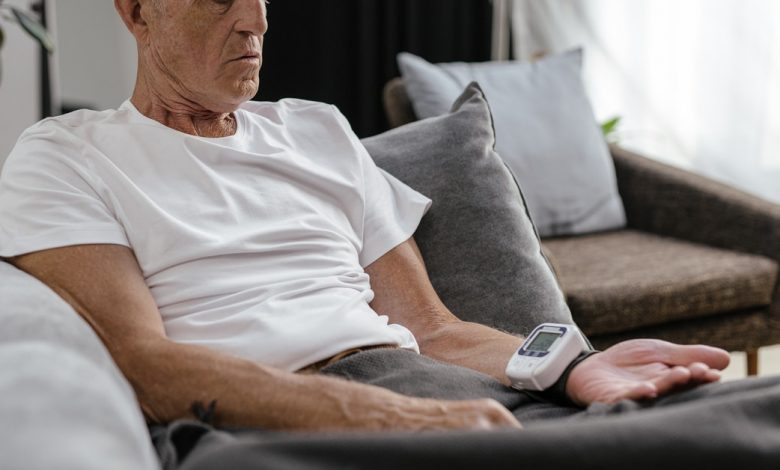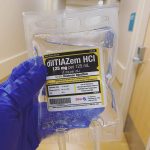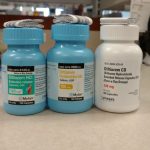What Are The Side Effects Of Diltiazem?

The National Cancer Institute (NCI) defines an adverse effect as “an unexpected medical problem that happens during treatment with a drug or other therapy.” Unwanted effects can result from a physician’s advice and from medications or treatments, including complementary and alternative therapies. They can lead to complications.
Reports from clinical trials describe adverse events (AEs) and serious adverse events (SAEs). SAEs include death, birth defects, complications that require hospitalization, or permanent damage.
Approximately one in three Americans have high blood pressure, but only about half of those who do have the condition under control. One common reason: they stop taking their medications, often because of troublesome side effects such as weakness, fatigue, or a dry cough. However, taking smaller doses of several different blood pressure drugs may be a good way to address these issues, a new analysis suggests.
Researchers pooled findings from 42 studies involving more than 20,000 people with high blood pressure. All had been randomly assigned to take a placebo or one or more blood pressure drugs in varying combinations and dosages. (For the American Heart Association’s list of common blood pressure drugs, including their possible side effects.
Researchers found that taking a quarter-dose of a two-drug combination was just as effective at lowering blood pressure as taking a full dose of one drug. Taking a quarter-dose of a four-drug combination was even more effective (although it’s important to note that this finding came from a single, small trial). People who took smaller doses of multiple drugs had fewer side effects than those taking a single drug at the full dose. In fact, their side effects were similar to those of people who took placebos. The study was published in the July 2017 issue of Hypertension.
What is Diltiazem?
Diltiazem is a medication used to treat high blood pressure and to control angina (chest pain). Diltiazem is in a class of medications called calcium-channel blockers. It works by relaxing the blood vessels so the heart does not have to pump as hard. It also increases the supply of blood and oxygen to the heart.
How should Diltiazem be used?
Diltiazem comes as a tablet, an extended-release (long-acting) tablet, and an extended-release capsule to take by mouth. The regular tablet is usually taken three or four times a day. The extended-release capsule and tablet are usually taken one or two times a day. Ask your pharmacist if you should take diltiazem with or without food, because instructions may vary with each product. Take diltiazem at around the same time(s) every day. Follow the directions on your prescription label carefully, and ask your doctor or pharmacist to explain any part you do not understand. Take diltiazem exactly as directed. Do not take more or less of it or take it more often than prescribed by your doctor.
Swallow the extended-release capsules and tablets whole; do not chew or crush them.
Your doctor will probably start you on a low dose of diltiazem and gradually increase your dose, not more than once every 7 to 14 days if you are taking the extended-release tablet or capsule and not more than once every 1 to 2 days if you are taking the regular tablet.
If taken regularly, diltiazem may control chest pain, but it does not stop chest pain once it starts. Your doctor may give you a different medication to take when you have chest pain.
Diltiazem controls high blood pressure and chest pain (angina) but does not cure them. It may take up to 2 weeks before you feel the full benefit of diltiazem. Continue to take diltiazem even if you feel well. Do not stop taking diltiazem without talking to your doctor.
What are the side effects of diltiazem?
Diltiazem may cause side effects. Tell your doctor if any of these symptoms are severe or do not go away:
- constipation
- cough
- diarrhea
- dizziness or lightheadedness
- flushing
- headache
- nasal congestion
- slow heartbeat
- vomiting
- weakness
Some side effects can be serious. If you experience any of the following symptoms, call your doctor immediately or get emergency medical treatment:
- difficulty breathing or swallowing
- extreme tiredness
- fainting
- flu-like symptoms
- increase in frequency or severity of chest pain (angina)
- lack of energy
- loss of appetite
- nausea
- pain in the upper right part of the stomach
- rash
- swelling of the face, eyes, lips, tongue, hands, arms, feet, ankles, or lower legs
- unusual bleeding or bruising
- yellowing of the skin or eyes
If you experience a serious side effect, you or your doctor may send a report to the Food and Drug Administration’s (FDA) MedWatch Adverse Event Reporting program online (http://www.fda.gov/Safety/MedWatch) or by phone (1-800-332-1088).
How to cope with diltiazem side effects
While you might have fears and concerns, the long-term health consequences of uncontrolled high blood pressure are often worse than any medication side effects. If you have concerns, talk to your doctor or pharmacist. Everyone involved has the same priority — putting your health first.
Treating high blood pressure requires time, patience, and care by both you and your doctor. The important thing is for you to communicate with your doctor and to follow his/her course of treatment.
• Don’t insist that your doctor prescribe certain drugs. There can be serious side effects if you take a drug that isn’t right for you. Always discuss any medication choices with your doctor and work together to control your blood pressure.
• Take medications for high blood pressure — exactly as prescribed — for as long as required. Don’t run out of pills for even one day. Taking a pill every other day or splitting your pills in half to make them last longer is actually decreasing your dosage and may be dangerous. Your blood pressure can rise to dangerous levels, putting you at risk for heart attack, stroke, heart failure, and kidney failure.
• You may need more than a diltiazem prescription. Because different drugs do different things in the body, you may need more than one medication to properly manage your blood pressure.
• If you are having a hard time affording diltiazem, talk to your doctor or pharmacist. There may be solutions like assistance programs or generic forms of medication.
• Tell all of your healthcare providers about all of the over-the-counter and prescription drugs you are taking. Some drugs and supplements can raise blood pressure and/or interfere with the effectiveness of diltiazem. These drugs can include steroids, non-steroidal anti-inflammatory drugs (NSAIDs), nasal decongestants and other cold remedies, diet pills, cyclosporine, erythropoietin, tricyclic antidepressants, and monoamine oxidase inhibitors.
• Be patient if it takes time to find the right dose for you. If you have diltiazem side effects, tell your doctor. Different people can respond very differently to medications.
Everyone has to go through a trial period to find out which medications work best with the fewest side effects. Give yourself a chance to adjust to a drug. It may take several weeks, but the results will usually be worth it. If you don’t feel well after taking a medication, let your doctor know so he/she can adjust your treatment. Never change or stop taking prescribed medications unless directed by your doctor.
• Keep appointments with your healthcare professionals. It’s important to monitor your progress and make adjustments to your treatment to keep your blood pressure under control.
• Don’t go “doctor shopping” and communicate with everyone involved in your treatment plan. Stick to one reliable doctor or healthcare provider and follow through with your treatment plan. If you’re working with a primary care doctor and a specialist, make sure that each knows what the other has prescribed. Using one pharmacy for all your prescriptions also helps avoid dangerous drug interactions.
• Expect to treat high blood pressure for life. Doctors will sometimes reduce a patient’s drug dosages after achieving normal blood pressure and maintaining it for a year or more, although it is rare for the treatment to be stopped entirely. Some form of treatment must be continued over a lifetime for good results.
• Even if you’re feeling fine, NEVER cut back or quit taking diltiazem without speaking with your doctor. Medication and lifestyle changes can make a huge difference. However, it’s the combination of these factors that are working, not just lifestyle alone.





